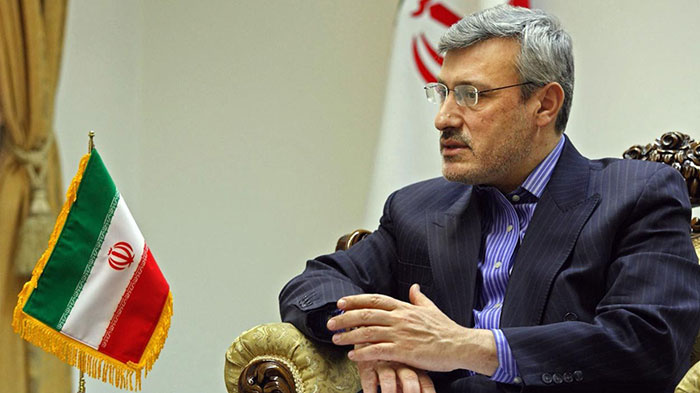ISA Extension by Senate Not Violation of Nuclear Deal, Says Senior Iranian Negotiator

Iran’s ambassador to the UK and former nuclear negotiator Hamid Baeidinejad has published a note on his Instagram account explaining that the ten-year extension of Iran Sanctions Act does not signify an automatic return to the sanctions included in the law; however, its actual implementation does. Here are a few highlights from his note:
1 A premise for talks regarding the lifting of sanctions, which was agreed by Tehran, was that due to the US’ Congress’ opposition to a nuclear deal, it was up to the US administration and the US president’s authority to terminate and suspend the sanctions. The nullification of those sanctions will occur once the Iranian parliament ratifies Iran’s joining of the Additional Protocol in the eighth year of implementation, or sooner only if the IAEA endorses the peaceful nature of Iran’s nuclear program. Until then, the secondary US sanctions will be in place, but not executed. In the meantime, all EU sanctions are directly removed.
2 In the past, the US has passed several sanctions against Iran which still have legal validity and are not revoked, including: Iran Freedom and Counter-Proliferation Act of 2012 (IFCA), Comprehensive Iran Sanctions, Accountability, and Divestment Act of 2010 (CISADA), the provisions of the defense budget bill, and Iran Sanctions Act (ISA). Even if the latter was not extended, several other sanctions regulations and executive orders have been ratified in various areas that could provide the US president with the ability to impose sanctions on the same areas covered in ISA, namely oil and petrochemical industries.
3 During the negotiations, Iran demanded that the US stopped extending ISA. US representatives said they did not disagree with this demand and felt no necessity for the extension. Nonetheless, they could not make commitments on behalf of the two legislative chambers but said would spare no efforts to prevent the extension. The US negotiations team also stressed that the US administration is committed to suspend the provisions of ISA, in case of an extension, in accordance with the nuclear agreement.
4 Whether the US administration has done its utmost to prevent the extension of ISA needs a separate discussion, but one of the obstacles that emerged in the US was the efforts by the opponents of the deal to add new sanctions beyond the current provisions of the ISA. Many amendments were made by some representatives opposing the deal. If any of them was passed, it would be an explicit breach of the JCPOA since they were imposed as new sanctions. After long talks between representatives of the two chambers from both parties, a final agreement was reached to put aside all the amendments and only pass the extension.
5 Iran has put on agenda an appropriate response, but some media outlets have interpreted the extension of ISA as an automatic snapback. It is definitely an incorrect interpretation. It is true that the Act will be legally valid once the US president signs it but the reimposition of sanctions included in ISA requires a separate decision by the administration. That adopted, it would be doubtlessly a breach of the JCPOA.
6 As one can see, the JCPOA specifically revokes the implementation of all the main components of the ISA. In the same way that the implementation of ISA sanctions were suspended in spite of their validity in the past year, their implementation should remain suspended in the years to come. If it were not so, investment in Iran’s oil industry would not be possible after the deal.
7 Considering the fundamental principles of international law, the extension of ISA does not change US commitments to suspend its implementation in compliance with the nuclear deal. If the US violates even a single provision of its commitments and executes ISA provisions regarding sanctions on oil, energy, and petrochemical sectors, preventing foreign firms from investment in those industries, the country has violated its commitments without any doubts.

